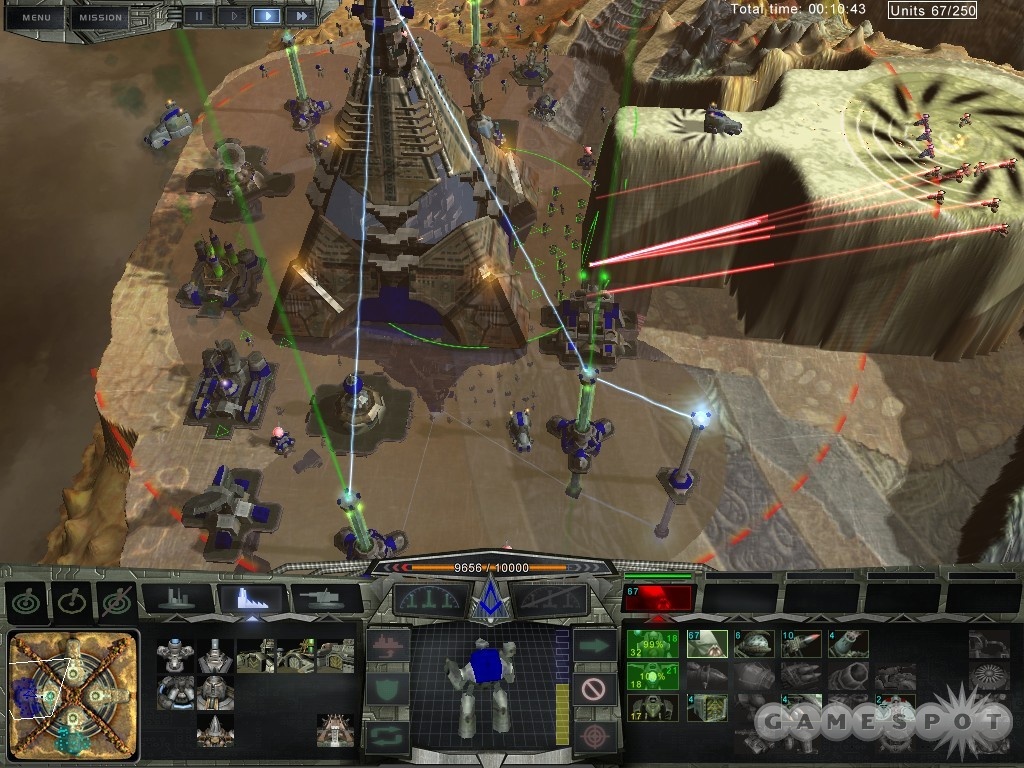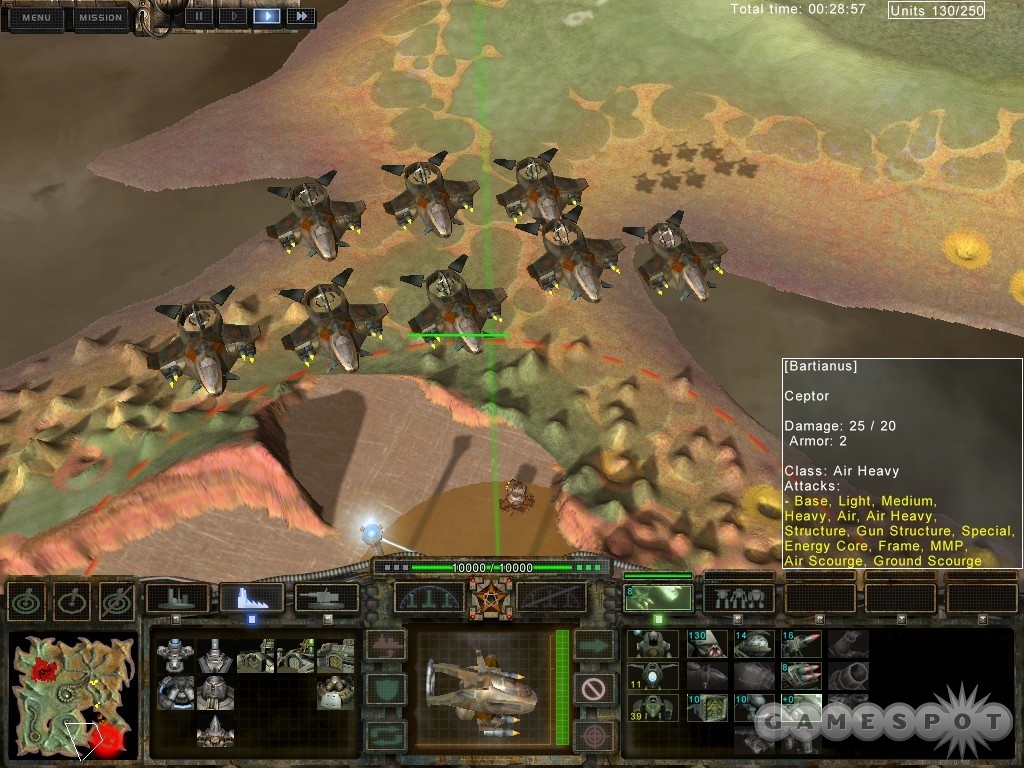Seeing as Perimeter was one of the most innovative real-time strategy games to come down the pike in some time, you would expect it to spawn a radical expansion pack or sequel. The original game is filled with out-there touches such as a bizarre plot featuring sponge worlds that can be bulldozed however you see fit and nanotech units that morph like pint-sized Transformers. While Emperor's Testament is another solid, supremely strange RTS, Russian developer K-D Lab has stuck to the template of the 2004 original and made it a straightforward expansion. This is one of those don't-fix-it-if-it-ain't-broken add-ons that builds on the old story, themes, and settings. The game is a collection of new maps and missions that stretch the original campaign in a new direction, so only fans of the first game need apply.

It feels like you're picking up where you left off, too. K-D Lab assumes that you have no small experience with the original Perimeter, as you aren't eased into the wacked-out goodness with an in-game tutorial or a step-by-step primer in the manual. Instead, you kick off the roughly two-dozen-mission campaign with disjointed opening cinematics and an incomprehensible briefing from the eponymous emperor about why you're working as a slave to help him conquer the sponge. But even though the plot and setting are calculated to make your head spin, the game itself remains focused because of its innovations.
Just like in the original Perimeter, the headlining innovation here is the ability to terraform map terrain in real time. Unlike the hills and mountains in other 3D RTS games, physical features here are routinely flattened to construct energy cores needed to generate the game's lone resource (which, unsurprisingly enough, is energy) and spread your base across the sponge. You can even carve up the terrain with moatlike defensive ditches. Though this is undeniably nifty, terraforming feels a bit gimmicky, as the terrain in each map is laid out so that there are just a few key locations where it makes sense to level the ground or dig ditches. This gives missions a strong puzzle vibe and forces you to figure out what the scenario designers require before committing to a course of action. Unfortunately, it isn't effective to tear up the turf wherever and whenever you feel like some impromptu landscaping will improve your odds against enemy forces.
Because of this limitation, you need to learn maps instead of dealing with them on the fly as tactical challenges. Missions play so fast and so tough from the beginning of the game (which means, again, that familiarity with the original Perimeter is a necessity before diving into this new campaign) that you typically need to experiment to see how the enemy will attack or, at the least, mess around with a mission for a few minutes to get your bearings before hitting restart. Only after doing this will you gain an idea of where you need to dig ditches and establish choke points, what areas you need to level to extend your energy-collection system, where the best spots are to build defensive laser cannons, and so forth.
Unit management, however, makes it easy to forgive the somewhat limited, puzzle-heavy mission design. Rather than the standard RTS formula of building custom facilities with which to crank out axemen, commandos, tanks, and the like, here you build only three types of units--soldiers, officers, and technicians--and then create labs that let you glom them together into bigger and better units, such as tanks and fighter aircraft. This feature really opens up strategic and tactical options, as you can completely transform your army on the fly to address whatever the enemy throws at you. Snipers getting blasted by enemy howitzers? Change them to high-flying ceptor choppers with the click of a mouse. Enemy countering your ceptors? Go back to the ground and turn them into mortars.
The big drawback to the gameplay here is that you've seen it all before. Emperor's Testament holds no surprises for Perimeter veterans. Units are virtually identical to those in the original game. Missions are all retreads, with goals and settings that will give you déjà vu. Multiplayer features just three maps, and since there is no matching service (the manual claims that the game comes with third-party software support, but there is no evidence of this in the game itself), you need to know the IP addresses of opponents.

Also, this expansion is out of step with the times. It uses the stock Perimeter engine, which looked great in early 2004 but looks rather jaggy in the second half of 2006. The sponge worlds still look great, though, with a slightly icky, organic appearance that reminds you of mold viewed under a microscope. Sound effects seem to date back even further than two years. Battle rat-a-tats and booms are tinny, many vocal samples are plagued with cheesy synth effects, and the music is based on a revved-up techno beat more suitable to a mid-'90s sim than a mid-'00s RTS.
So, second verse, same as the first. Perimeter: Emperor's Testament has the same appealing, if decidedly peculiar, blend of RTS convention and innovation, although veterans of the first game might find things a bit too familiar here. Still, it's only $20, so the price is right if you like weirded-out real-time strategy.